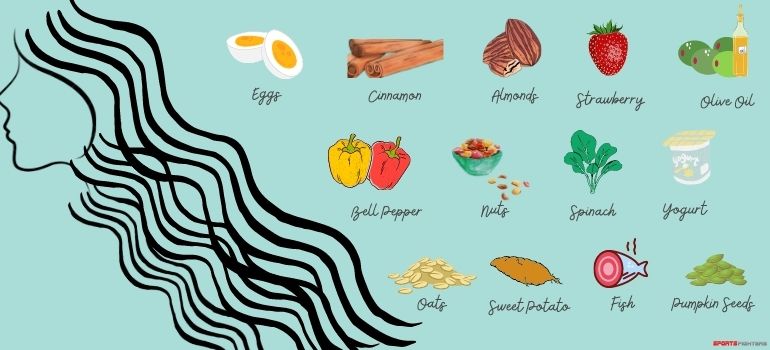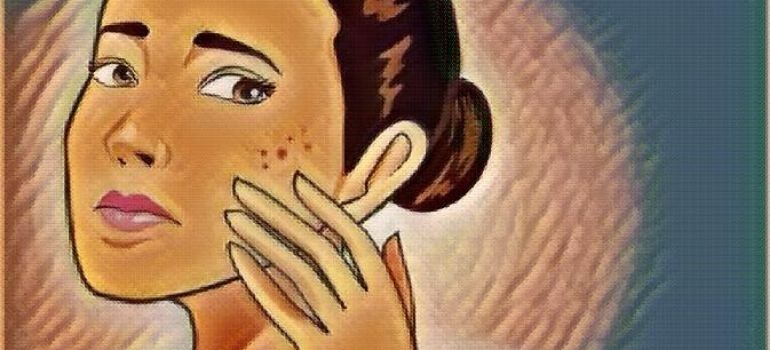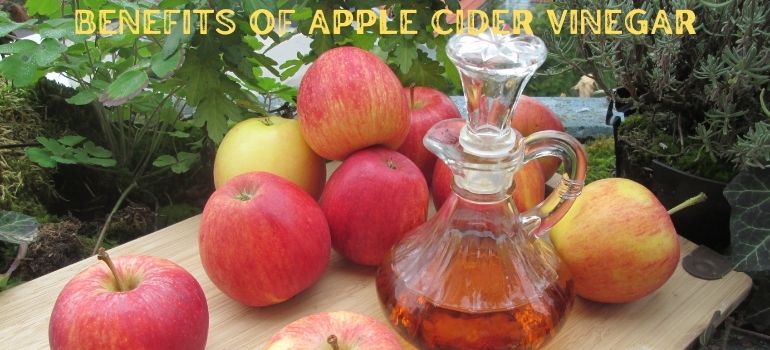Best Super Food For Healthy Hair
- 16 March 2022

BEST SUPERFOOD FOR HEALTHY HAIR
Long, strong, lustrous, thick, curly, short, dense, and layered. The list can keep going on, but the types of hairdos that people do will keep coming. The latest trends dictate new rules for hairstyles, and the world is quick to latch on to whatever is in vogue. As a result, follicular patience is tested, and expectedly, a lot of hair damage is dealt with simply because of extravagant and irrational hairstyles.
This, however, is but a minor reason for the damage of hair. In today's world, the air surrounding us is harmful enough to cause damage to the follicles and their roots in the scalp. Pollution is a significant cause of premature hair fall, understandably. In contrast, other more roundabout reasons can also be traced to the same: stress, fatigue, over-excretion of most hormones, and sometimes, hair fall is purely in the genes. While the genetic cause cannot be dealt with efficiently, there are a few ways healthy hair can be maintained, with an appropriate diet being as important a method to do so as any.
What does the body need to keep healthy hair?
Before we discuss the foods needed by the body to derive nutrients necessary for keeping healthy hair, we need to know what the nutrients themselves are. An essential diet for healthy hair must include protein, zinc, fatty acids, Vitamins A, C, D, E, and biotin.
Protein is fundamental for hair health, especially a type of hair protein called keratin generated by biotin intake.
Biotin is essentially a Vitamin B (B7), also called Vitamin H, and enough biotin usually is present in our diets as it is. However, not more than 30-100 micrograms of daily intake of biotin are needed for an average adolescent or adult, and excess intake, beyond prescription by doctors, can lead to nasty side effects. For example, a biotin imbalance may cause hair loss, rashes, and a scratchy scalp.
Zinc is another nutrient necessary for healthy hair, like protein and biotin. It helps keep follicles lubricated by strengthening hair oil glands and helps stifle hair fall by stimulating repair and growth. But, again, like biotin, much of the required zinc levels are met by a regular diet, and an imbalance of zinc intake can lead to adverse effects.
Fatty acids are of several types, but those vital for promulgating hair health are the omega fatty acids, found primarily in fish oil, which help with the thickness of the hair and overall strength and size.
An essential nutrient that boosts keratin formation in the body is collagen. The process is pretty simple: since the body requires several of the amino acids present in collagen, it breaks down collagen to get them and form keratin.
Collagen, while naturally produced by the body to build keratin, can also be supplemented by external foods, mentioned later in this article. In addition, it has been backed with sufficient research that collagen may also help slow down graying and thinning of hair. Among other vital nutrients of important mentioned is Vitamin C, which helps with the overall strength and longevity of the hair.
So what should be the foods we need to include in our diets?
Now that we know the importance of biotin to keratin and the nutrients required for supplying sufficient biotin and maintaining the significant health of hair, it is imperative to know what foods provide us with these nutrients that we so sorely need.
Cinnamon:
There are several myths surrounding the use of cinnamon and its abilities as a follicular aid. Still, since most of it is unfounded and cinnamon might be allergic to some people, it must be used with caution.
Applying it to the scalp is more beneficial than simple consumption.
A patch test is advised to check for irritation or any allergic reaction before use; after deeming it allergy-proof, a mixture of coconut oil, cinnamon oil, and ground cinnamon is added to the scalp in layers. Cinnamon is strong in potassium and has amounts of iron and calcium too. Due to its strong antifungal properties, it helps destroy dandruff and the scalp-fungus which causes them.
Cinnamon bolsters the strength of hair by improving circulation.
Almonds:
The luxurious offspring of the nut family, almonds, have been perennially understood to be nutritious and beneficent in several ways.
The almonds' rich omega fatty acids, potassium, and zinc levels only strengthen the claim.
Almonds Not only is it inclined to reduce hair fall, but it also lends a marked shine to your tresses and counters dandruff issues.
Strawberry:
Now you know when you're packing that basket with a bottle of champagne and strawberries, you're also packing in a suitable dosage of healthy-hair supplements. Not by way of the champagne, though.
Strawberries have high omega fatty acids and magnesium levels, which drain the scalp of unnecessary oil deposits and fight dandruff.
Egg:
The ready alternative to a protein-rich diet when meats are unavailable. Eggs have adverse side effects when taken in excesses, such as increased cholesterol and blood pressure.
Still, a controlled use and their rich deposits of biotin and Vitamins A and E will go a long way in strengthening every last strand of hair.
Eggs are also rich in protein content which is essential for hair growth.
Olive Oil:
Apply on the scalp for immediate effects.
It is an oil that acts as a protective lubricant, freeing up the dreaded clots formed in hair due to the pollutants in the air.
In addition, olive oil simultaneously helps soften and strengthen the hair – two ingredients to any successful hairdo.
Bell Pepper:
A little-known fact is that bell peppers have triple the amount of Vitamin C than citrus fruits, even oranges.
Their rich Vitamin C content is very good for hair integrity.
Boil in water for some time, cooled, and massaged onto the scalp, peppers contribute in yet another way to the strength of follicular tissue.
Nuts:
Understandably, nuts are rich in omega fatty acids, proteins, and potassium.
While among them, almonds have been proven to show the most beneficial effects on hair, intake of almost any kind of nuts varying from peanuts and cashew nuts to groundnuts helps with hair health.
Spinach:
Hair has millions of sebaceous glands that help produce sebum, an oil that lubricates the follicles present in the roots and promotes flexibility and strength.
Moreover, Spinach is loaded with Vitamins A, C, and iron, which help stimulate these glands to do their job even better.
Yogurt:
The pro-yogurt revolution toward the mid-2010s had several reasons behind it.
First, the simple protein levels in yogurt measured per unit volume versus its relatively low sugar and calorie counts make it an instant hit for almost any diet.
Expectedly, it features on this list because of its ability to lend potency to hair owing to protein levels. Greek yogurt also helps with blood flow to the scalp.
Oats:
Primarily used as animal fodder throughout human history, oats have only risen as an essential food item in people's daily diets in recent centuries. Significant levels of omega-6 fatty acids and antioxidants make them ideal for developing hair strength, and they constitute meals for people of all ages.
Sweet Potato:
Potassium? Check. Magnesium? Check. Iron? Check. The recommended requirements for this all-important hair-health trio are met when you bite into the hot-baked sweet potatoes this winter.
It is understood that sweet potatoes will do away with thinning of hair, reduce dulling, and speed up cell growth in the roots.
Fish:
While all fish are beneficial for the scalp and follicular health, salmon is the fish you should be looking for when looking for a serious addition to your diet for keeping a healthy crop of hair.
Salmon is rich in Vitamin B12 – biotin – iron, and omega-3 fatty acids. All of them are vital for hair health and shine, as stated earlier.
Flaxseed has been proven to be a ready substitute if salmon isn't available or if you're a vegetarian.
Pumpkin seeds:
Pumpkin seeds are suitable for the heart with their high antioxidant content, but they are also beneficial for the hair.
They consist of an amino acid – cucurbitin, which helps with hair growth. While other uses have only been speculated about till now, it is safe to say pumpkin seeds go a long way in aiding the body's overall well-being. It can be ground and consumed or applied to the scalp in pumpkin seed oil.



